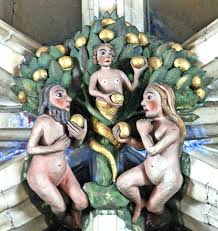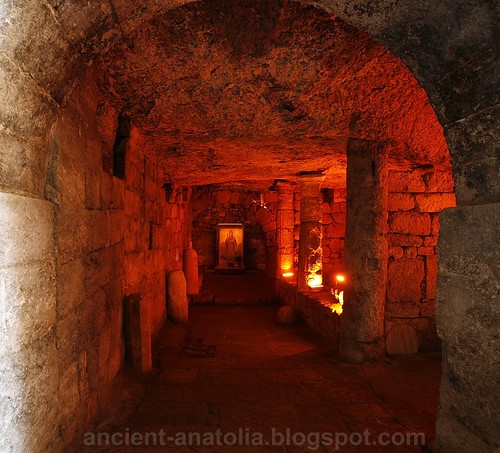 This is the first of three posts exploring how Christians substitute false gods for God. I should emphasise from the outset that I will not be covering every instance of this kind of spiritual sleight of hand. Neither am I asserting all Christians believe these things.
This is the first of three posts exploring how Christians substitute false gods for God. I should emphasise from the outset that I will not be covering every instance of this kind of spiritual sleight of hand. Neither am I asserting all Christians believe these things.
I should add that many of these beliefs are normal for Christians to hold during their faith journey. For many Christians, extreme beliefs held at one stage mellow as experience leads them into deeper reflection on the beliefs they hold to be absolute. It is a common experience over a lifetime of faith, to return to certain beliefs in new ways, as faith develops.
Some Christians make an idol out of Scripture, by claiming it is inerrant. There are many ways of reading and interpreting scripture and some are better than others. Inerrant beliefs are not the only way to interpret scripture, they are one way amongst many. The problem is those who believe their interpretations are inerrant, believe they are the only way of understanding scripture. They will speak of the plain meaning of scripture and find it hard to believe what seems plain to them might not be at all plain to others. Of course, the belief that scripture has plain meaning, itself needs examination.
Karen Armstrong in her recent book, The Case for God , makes a distinction between logos and mythos. The former are those beliefs, like science, which can be derived from observation of the world. Mythos is revealed beliefs. These are derived from the interpretation of scripture. To confuse the two is an error in logical typing. Fundamentalism treats scripture as logos and believes it is true in the way scientific observations are true. In Christian history, this approach to interpretation is unique to fundamentalism and began during the last century. Atheists also treat scripture as logos and deny the reality of mythos.
So, what is scripture about? It is a witness by many people to their experience of God. That's all it is. However, there is more to add. It is worth looking at Walter Wink's trilogy of books about the powers. What follows is derived from his work.
Scripture may appear to be about all manner of things spiritual and we easily forget the witnesses to God were writing about things both real and spiritual. Usually we have no problem agreeing about the reality of the everyday material world. There is also a spiritual world and it is equally real. Some witnesses write in terms of angels and demons. These stand for the more difficult reality the witness describes.
That reality is human institutions. At the time of the New Testament, people believed every institution, eg a nation or a church, had an angel. When the institution ceases to exist, so does its angel. What they meant was interactions between people can take on a life of their own. These interactions might be relatively healthy or relatively unhealthy. Broadly, a demon is an angel that is unhealthy. These institutions then exert real influences over us, and mostly we are not aware of them.
Sometimes people talk of institutional sin, and some are quick to deny it exists or to play down its influence. Actually, there is no other type of sin, our behaviour is influenced at all times by institutions. We read scripture and pray to help us see these influences and find actions we can take to be free of them.
Idols are the images we make of these real institutional powers. So, we depict consumerism as Father Christmas , for example. These idols are seductive because they lead us to something we perceive to be real. However, they also lead us to false conciousness of these things. The role of faith is to help us to become aware of our idols and to substitute healthier images for them.












Recent Comments